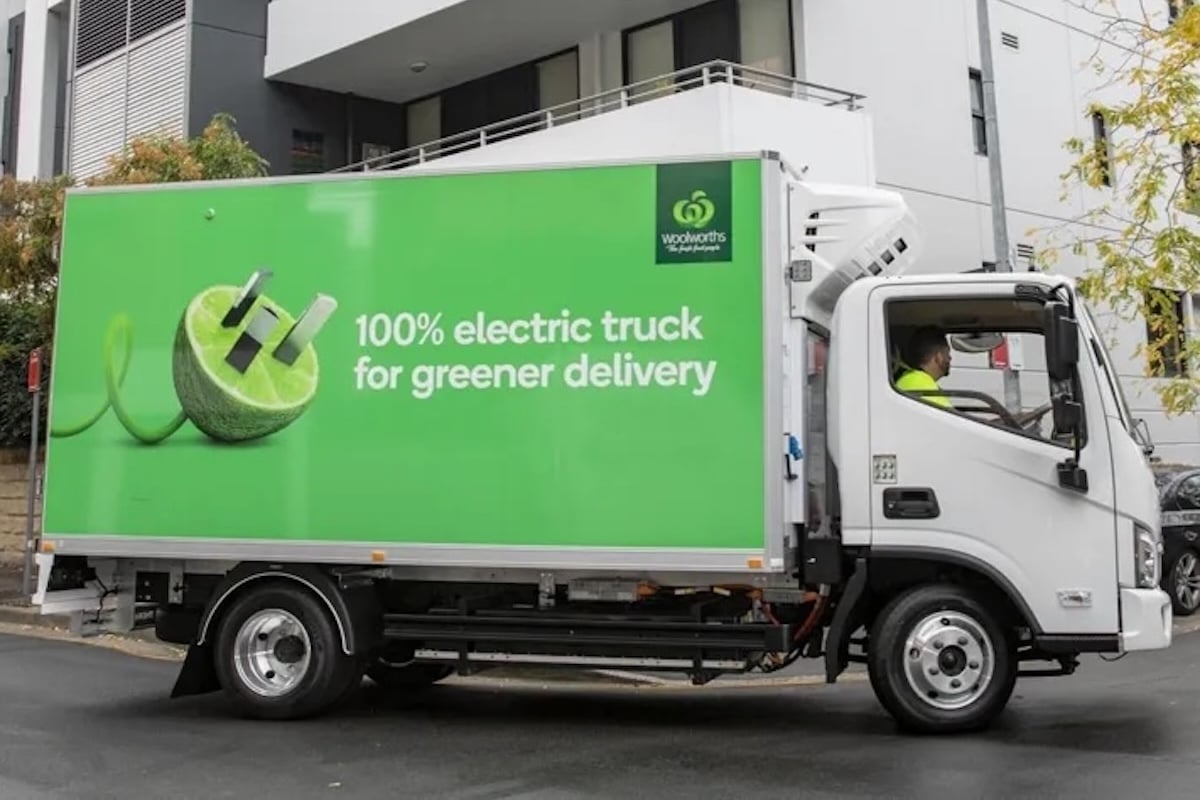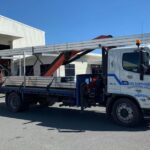Home | About Us | Services | Contact Us
Funding delivered for 60 electric trucks

Australia’s transition to cleaner transport has taken a major step forward, with the Clean Energy Finance Corporation (CEFC) investing up to $6 million to help deploy more battery electric trucks (BETs) on the country’s roads.
The investment supports global electric fleet specialist Zenobe, which will lease the new trucks to supermarket giant Woolworths to cut emissions from grocery deliveries in New South Wales and Victoria.
SUBSCRIBE to the PowerTorque newsletter
The funding will help deliver a fleet of 60 electric trucks for Woolworths’ “last-mile” deliveries, replacing diesel vehicles and reducing emissions in one of the country’s highest-polluting sectors.
“The heavy truck sector is a central part of Australia’s economy and supports the supply chains of most industries,” CEFC head of infrastructure Julia Hinwood says.
“Electrifying Australia’s heavy vehicle fleet is crucial for achieving national emissions reduction targets.”
Truck fleet electrification presents significant operational and logistical challenges, including high upfront costs, insufficient charging infrastructure, battery replacement and grid integration all of which are compounded by existing complexity in the broader freight and logistics sector.
The CEFC investment will help to support infrastructure development, and Zenobe’s shared infrastructure model will allow major logistics and freight operators and users to transition to electric vehicles (EVs) without the significant capital expenditure and complexity associated with the uptake of BETs.
“It is essential to address the finance gap present in electrification of heavy fleet transport to accelerate the decarbonisation requirements within the sector,” Hinwood says.
“This is a significant opportunity to accelerate the transport sector’s transition to a green fleet and introduce a new model for heavy fleet charging, leveraging the expertise of Zenobe.”
Zenobe’s “Electric Vehicle as a Service” (EVaaS) model helps overcome barriers such as high upfront costs, charging infrastructure challenges, and battery management.
“This support from the CEFC enables us to deliver electric trucks and charging infrastructure for Australia’s largest supermarket retailer,” Zenobe country director of electric vehicle fleets Gareth Ridge says.
“Through our Electric Vehicle as-a-Service model, we handle the upfront cost and complexity of fleet electrification and manage the entire transition so our customers can focus on their core business. Our work with the CEFC shows that electrifying the truck sector is not a distant ambition. It’s achievable today.”
Woolworths Group head of partnerships Henri Le Comte says partnering with Zenobe has helped the retailer expand its electric fleet rapidly.
“We are excited to partner with Zenobe to deploy a further 60 BETs and launch this first-of-its-kind charging hub in Australia,” Le Comte says.
“Working with Zenobe has allowed us to scale our EV fleet quickly, helping to make our suburban streets just a little quieter and cleaner. Through Woolworths’ continued investments in EV operations and infrastructure, we hope to set an example for other businesses to support the growth of Australia’s EV industry.”
The trucks financed by the CEFC are part of a broader $19 million initiative funded by ARENA and Zenobe, which includes Australia’s first off-site, multi-user charging hub for electric trucks in Mascot, NSW, which will serve Woolworths and other BET operators.
About 20 of the new electric trucks will operate from the Mascot site, with the remainder deployed across various sites in NSW and Victoria.
Transport currently accounts for around 22.3 per cent of Australia’s national emissions and remains the fastest-growing source of greenhouse gases. Without intervention, it’s projected to become Australia’s largest source of emissions by 2029.
BETs represent a key opportunity to decarbonise the sector, but so far their sales lag significantly behind diesel models. As of March 31 2025, the CEFC has financed more than 14,000 electric vehicles worth over $900 million, including investments in other EV-related projects such as electrified bus fleets and truck transitions for major freight operators.




